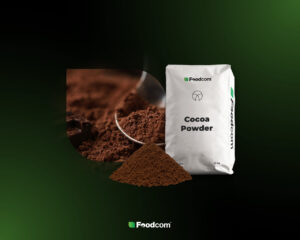- Rapidly rising demand for Potato Protein is depleting stocks ahead of the June planting season.
- Increased consumption of alternatives like erythritol and stevia, particularly in summer products, due to their low calorie benefits.
- Record high prices continue due to production deficits and logistical challenges, with interest growing in substitutes like carob.
Welcome to our plant-based newsletter!
This week we look at market trends and strategic negotiations impacting key commodities, including plant proteins, natural sweeteners and cocoa. Stay up to date with our overview of the rising demand challenges, production forecasts and international trade dynamics that are shaping the current landscape of the industry.
Let’s take a look at what else is happening on the market!
Products of the Week
Proteins
The demand for potato protein for the animal nutrition sector is rising rapidly, emptying warehouses. This shortage is exacerbated by the limited supply of potatoes, especially in the run-up to the upcoming harvest. We will have to wait until June to assess how the situation develops, as this is when the potato planting season begins. But rest assured that Foodcom has its own reserves to allay any concerns.
Sweeteners
We are seeing a significant increase in demand for sweeteners such as sugar, maltitol, erythritol, xylitol, and stevia. This is characteristic of the summer season. The trend towards sweeteners is particularly evident in summer treats and drinks. Alternatives to sugar are popular due to their low calories and minimal impact on blood sugar levels. This inclination towards natural sweeteners is also encouraged by the move away from aspartame.
Cocoa
Cocoa prices continue their record-breaking upward trend amid production deficits, rising costs and logistical challenges, posing a constant challenge for chocolate and other cocoa products. Supply shortages are becoming increasingly difficult to manage. There is also growing interest in cocoa substitutes such as carob, which could provide some relief in the midst of the cocoa crisis.
NEWS
Negotiations on Ukrainian export restrictions to Poland underway
The First Deputy Minister of Agrarian Policy and Food, Taras Vysotskyy, predicts a possible solution to the ongoing export restrictions between Ukraine and Poland by the end of this month. The negotiations, which are being held both in person and online, are aimed at resolving the problems with wheat and corn exports in the hope that Ukrainian agricultural products will gain free access to the European market.
China plans to significantly increase grain production by 2030
China is launching a new initiative to significantly increase grain production in the coming years. The country plans to increase production capacity by more than 50 million tons by 2030, with a focus on corn and soybeans. Under the supervision of the NDRC and the Ministry of Agriculture and Rural Affairs, important projects such as water conservation and the modernization of the seed industry are being carried out in the main production regions.
Argentine maize yield forecast lowered under unfavorable conditions
The grain exchange in Buenos Aires has lowered its forecast for the maize harvest in Argentina to 52 million tons. The reason for this is the heavy pressure from insects and diseases, including corn cob disease, as well as the drought in the northwest. Only 11% of the crop has been harvested, with early yields affected and further declines expected due to escalating pest problems. Current crop conditions are rated 32% poor/very poor, with moisture issues also a concern. Farmers face ongoing challenges as unfavorable weather conditions and pests threaten the later stages of maize development.









